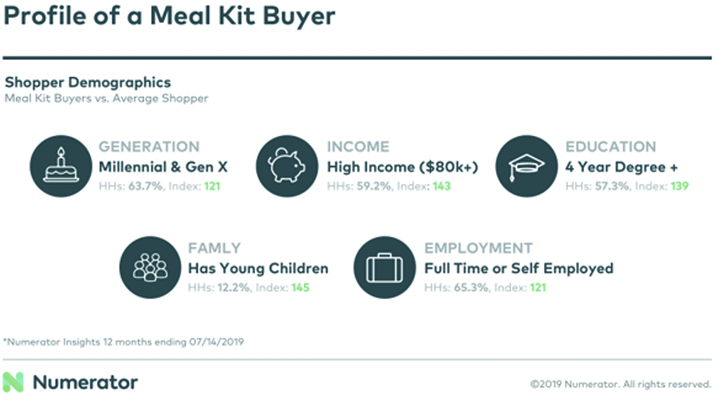Why are millennials the future for organic brands? Organic consumers are on the rise and they’re getting younger.
Choosing organic products is quickly becoming a way of life for younger consumers. They are seeking transparency, sustainability, and purpose. These young consumers mainly consist of Millennials, who make up 52% of all organic consumers. So, what do we know about Millennial shopping trends?
Convenience is key. Millennials make up a whopping 64% of meal kit delivery service subscribers! And they are eating and cooking at home an average of 3 nights per week. 65% of Millennial food kit subscribers say that convenience is the key factor.

Millennials are International Flavor Adventurers
Another reason meal kits are popular — 54% subscribe to explore and try new cuisines, different types of foods and tastes. They enjoy discovering and trying new flavors. They are flavor adventurers. 77% of Millennial leisure travelers said (pre-pandemic) that they like taking trips “to enjoy memorable eating and drinking experiences.” Wine can be an obvious entry into the world of traveling via flavors and country of origin.
In addition, the new flavors and cuisines they explore are predominantly international. This means they are likely to seek out international/imported wines to complement their meals. And being the budget conscious generation that they are, value and price point is a key factor here. 77.9 % of wine purchased in the US (United States) is less than $20 per bottle, which most imported wines are.
Gaining Trust with Millennials
Gaining the trust of the Millennial audience is all about transparency.
94% of Millennials say that they are more likely to be loyal to a brand that is transparent! And 53% will try new brands because they are transparent.
Brands who are targeting younger consumers on social media who are using targeted hashtags that leverage the consumers interest in health and sustainability are gaining serious traction. As digital natives, they consider themselves farming, food and culturally savvy.
So, your key messaging should include things like:
- Where is the product from?
- How is the product made?
- The ingredients in the product.
- Cost to make the product.
It takes a lot of work and time to be transparent, but it’s worth it to continue to grow in the organic market. The younger generations are telling us this with their shopping trends.
Sources:
The Organic Trade Association
wine-searcher.com
NPD Group
Forbes

